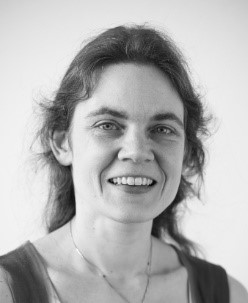
Veroniek Saegeman – Clinical Biologist – VITAZ
Veroniek Saegeman graduated as clinical microbiologist and infection control practitioner in 2011 at the Catholic University of Leuven in Belgium. She performed her PhD in the field of tissue banking, studying the contamination and decontamination methods used for allogeneic tissue allografts.
Currently, she holds a position as microbiologist and infection control practitioner in Vitaz, a large regional hospital in Sint-Niklaas, and as a consultant infection control practitioner in University Hospitals Leuven. Since 2014, she is active in the ESCMID Study Group for Forensic and Post-mortem Microbiology (ESGFOR). The group aims to establish European guidelines for standardized microbiological sampling, testing methods and results interpretation in forensic cases through international and multidisciplinary cooperation.
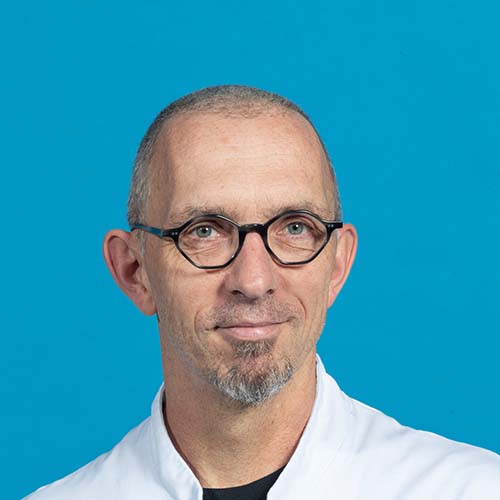
Bart Rijnders – Infectiologist – Erasmus MC
Dr. Bart Rijnders is a professor in infectious diseases at the university hospital Erasmus MC in Rotterdam, the Netherlands. He studied medicine and defended his PhD on catheter-related infections at the University of Leuven in Belgium in 2003.
He works as an infectious diseases physician and combines his clinical work with research on infections with a special focus on the immunocompromised host.
Studies concentrate on patients with an underlying hematological disease in order to improve the prevention, diagnosis and treatment of bacterial and invasive fungal infections in this vulnerable patient group. The second pilar of the research group aims at improving current HIV test strategies in Europe, improve the treatment of HIV and study the size of the HIV reservoir as well as interventions to decrease the reservoir. Last but not least, research on the treatment of COVID-19 in high-risk and immunocompromised patients became the third research arm of his team.
An overview of his scientific output is available at https://pubmed.ncbi.nlm.nih.gov/?term=rijnders+b
When not working, Bart enjoys all kinds of endurance sports like cycling, inline skating, or cross-country skiing.
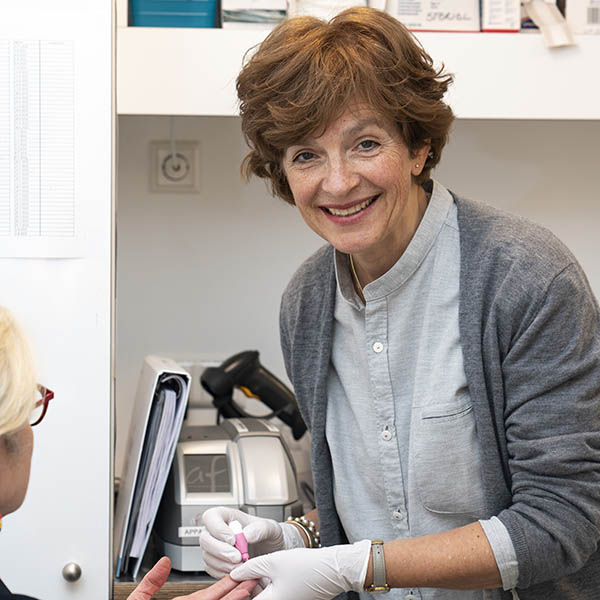
Anique Nolet
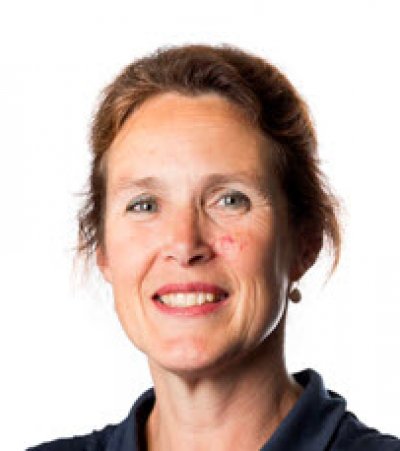
Annelies Verbon – Infectiologist – UMC Utrecht
Annelies Verbon is professor of Infectious Diseases at the UMC Utrecht and combines clinical patient care with research and management. She published over 275 peer reviewed papers and was (co-) promotor of over 20 PHD students. Annelies is a member of several guideline committees, among which the national antibiotic surveillance committee, chair of the NVII and treasurer of UEMS-ID.
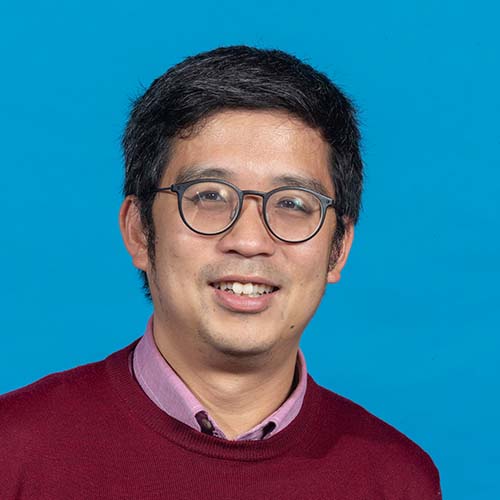
Erlangga Yusuf – Clinical Microbiologist – Erasmus MC
Erlangga Yusuf, born and grew up in Indonesia, is a clinical microbiologist at Erasmus University Medical Center, Rotterdam, The Netherlands. He completed his medical degree at the University of Amsterdam (2007), and earned Ph.D. in Rheumatology from Leiden University (2013). He obtained his board accreditation in clinical biology (laboratory medicine) in Belgium (2016), where he was mainly trained at the Brussels University Hospital, and in clinical microbiology (2019) in The Netherlands. He is further qualified as epidemiologist and has a master in infection prevention from Catholic University of Leuven, Belgium. He will graduate for a Master study on Global Health Policy from London School of Hygiene and Tropical Medicine, UK in 2022. He has worked earlier as research fellow at Lausanne University Hospital, Switzerland and as laboratory medicine specialist at Antwerp University Hospital.
Erlangga has more than 75 peer-reviewed publications and three book chapters, serves as an ad-hoc reviewer for over 15 journals and has reviewed various grants for various organizations. He is an associate editor of one of the main Journals in Clinical Microbiology: the Clinical Microbiology and Infection, and is an expert member of the Dutch Foundation for the Quality Assessment in Medical Laboratories for the Bacteriology section. Previously, he was member of the Belgian National Antibiotic Commission and Belgian Accreditation Commission for Clinical Biologists. His own main research interests are performance and application of diagnostic tests, general bacteriology, prosthetic joint infection, and diagnostic and treatment of critically ill patients.
He lives in Antwerp, Belgium, and commutes daily to Rotterdam, The Netherlands. During his free time, he likes to watch live football in the stadiums everywhere in the world. He plays football sometimes, and likes read about history, policy and politics. He doesn’t practice it a lot anymore but he holds a black belt in Taekwondo from Kukkiwon South Korea.
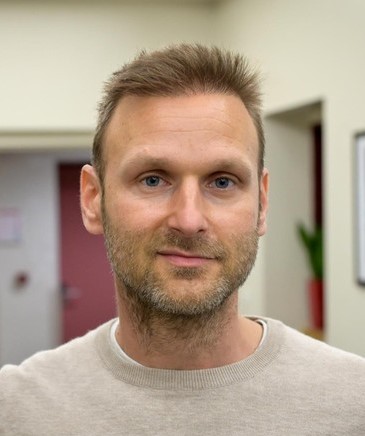
Steven Van Den Broucke – Infectiologist – ITG
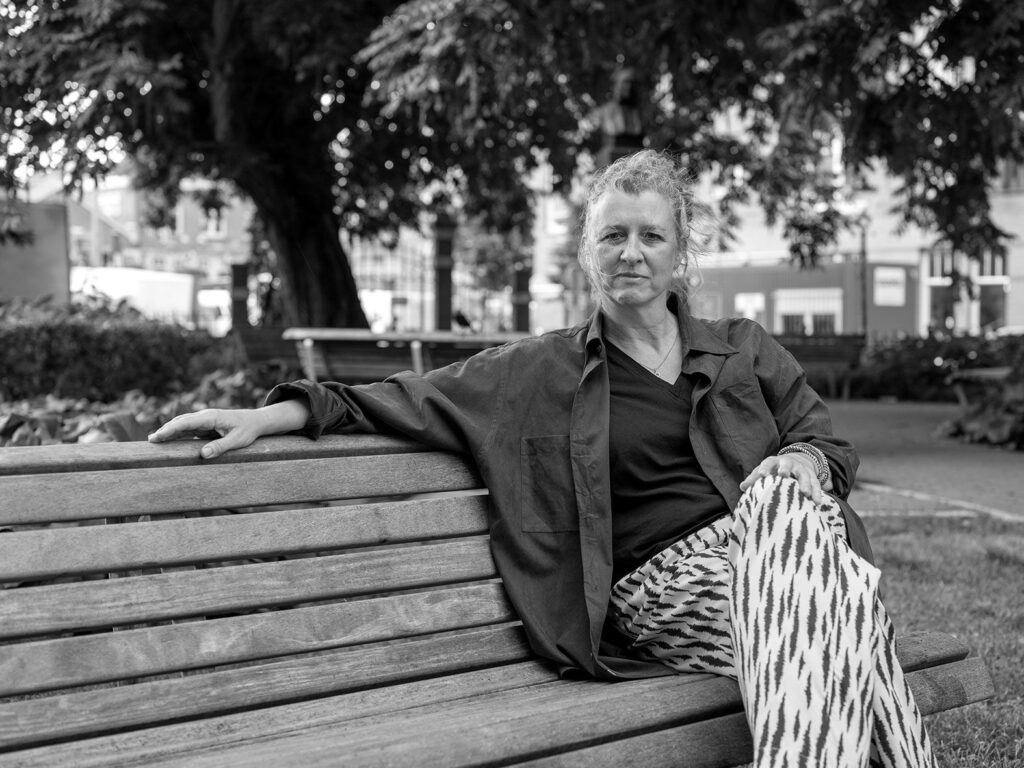
Ingrid Spijkerman – Clinical Microbiologist – Amsterdam UMC
Ingrid Spijkerman is a clinical microbiologist in the Amsterdam University Medical Centers. She is currently the head of the Infection Prevention & Control unit, leading the fusion of the IP&C units of 2 academic hospitals together with the SARS-CoV-2 outbreak.
Her areas of expertise are outbreak management, epidemiology, guideline development and sustainability. She is now chair of the expertgroup for the IP&C guideline on disposal of urine and feces, and is participating in the expertgroup for the IP&C guideline for the Operating theatre. Her latest article ‘The carbon footprint of the operating room related to infection control measures: a scoping review’ is recently published in the Journal of Hospital Infection.
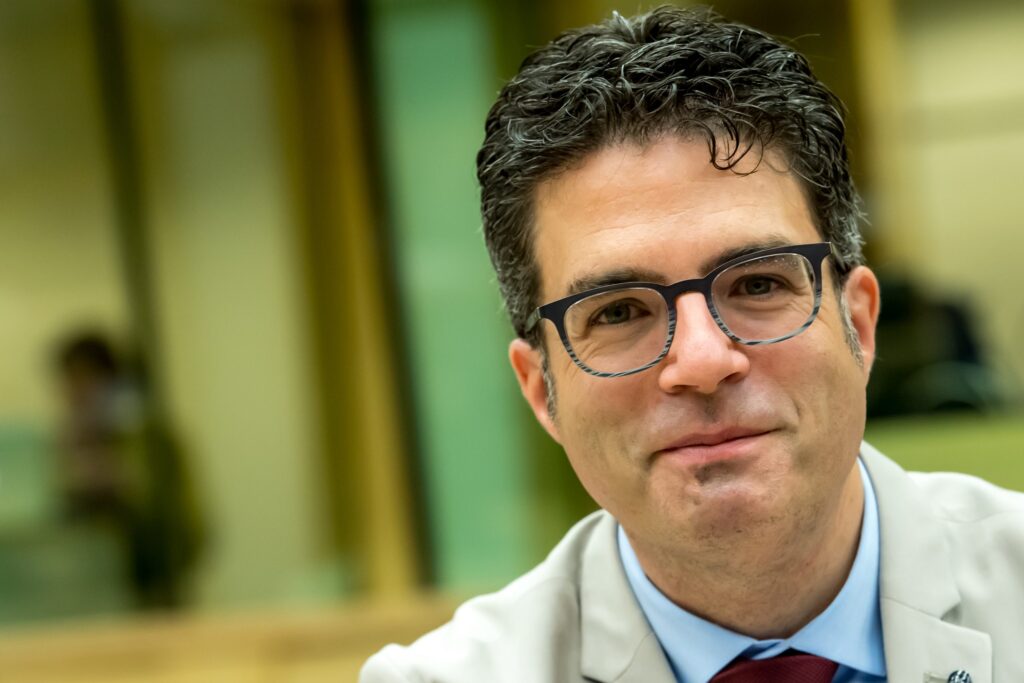
Steven van Gucht – Epidemiologist – Sciensano
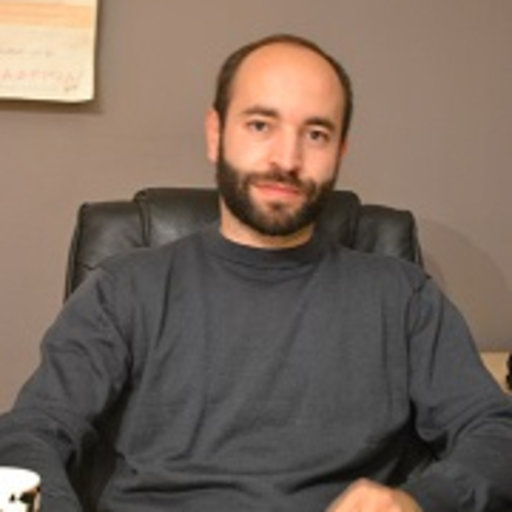
Ilias Chantziaras – Faculty of Veterinary Medicine – UGent
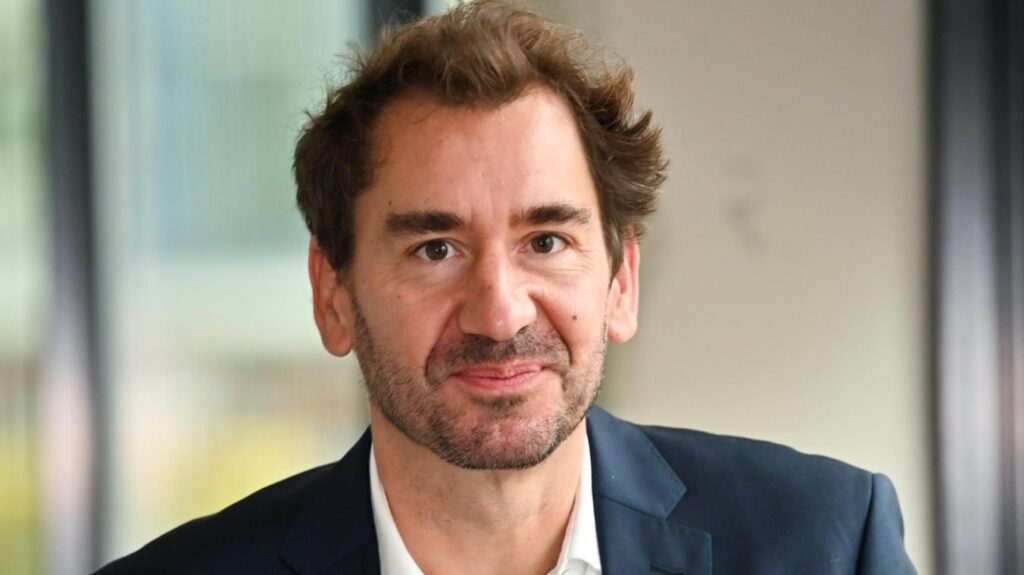
Marius Gilbert – Epidemiologist – ULB
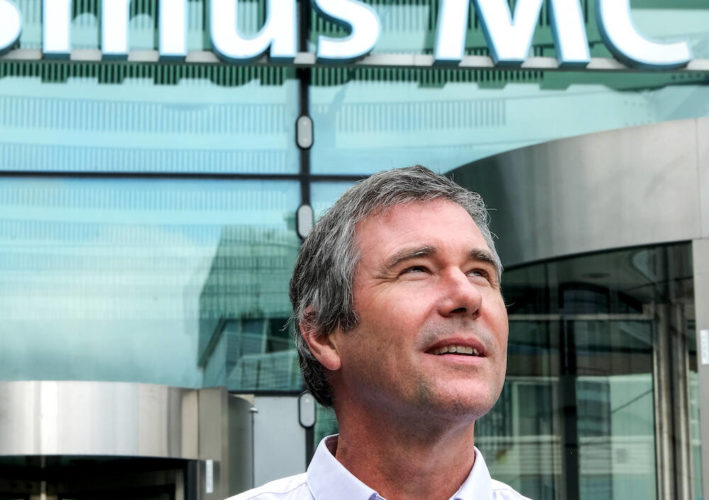
Thijs Kuiken – Veterinarian – Erasmus MC
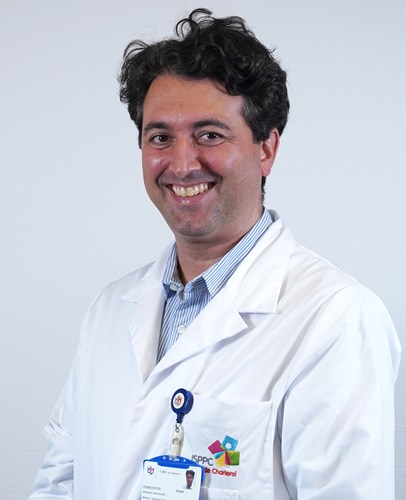
Rémy Demeester – Infectiologist – CHU Charleroi
Rémy Demeester is a specialist in Internal Medicine and Infectious Diseases working at the University Hospital of Charleroi in Belgium since 2010, where he is head of the HIV Reference Centre and also Infection Prevention and Control specialist. After studying Tropical Medicine at the Institute of Tropical Medicine in Antwerp (ITG), he worked in an HIV project in Rwanda for 6 months in 2003. Thereafter he was resident for 2 years in the department of Tropical Medicine at the University Hospital of Antwerp (2006-08), and for 2 years in the Department of Infectious Diseases at the University Hospital St Pierre in Brussels (2008-10). He has been administrator of Doctors of the World Belgium from 2015 until 2021 and was interested by the defense of the rights of the asylum seekers severely ill. He has authored and co-authored more than 25 peer reviewed publications.
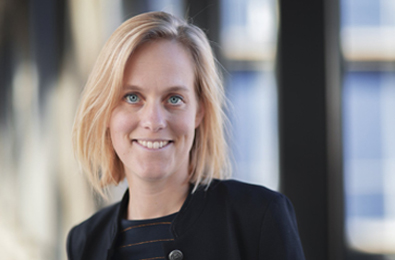
Meta Roestenberg – Infectiologist – LUMC
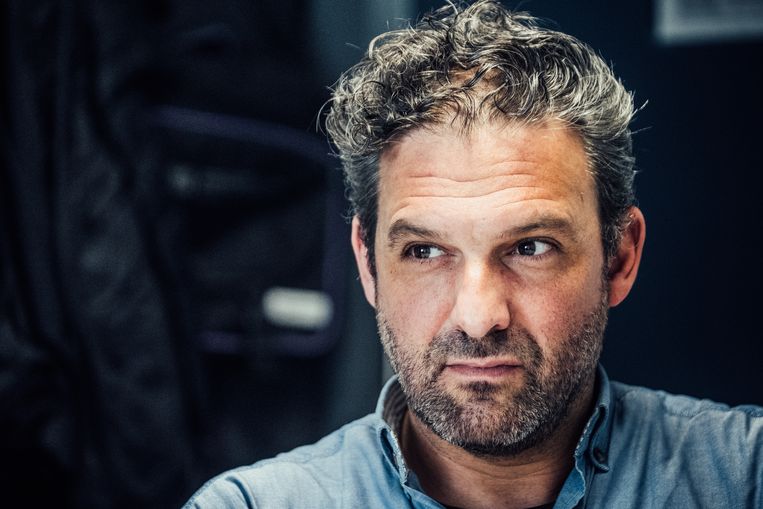
Wouter Arrazola de Oñate – Public Health – VRGT
Medical doctor in public health and social determinants of health, trained by Prof Marleen Temmerman (former director at WHO) at the International Centre for Reproductive Health (UGent). Lived in Mozambique and Southern Africa for years, working on the HIV pandemic: access to care/drugs, sexually transmitted infections, women’s rights, health inequality, capacity building. Learned the power of health advocacy witnessing the joint actions of Treatment Action Campaign and Nelson Mandela. Back in Belgium, assisted in activities for vaccination of newcomers by the School Health programme, city of Antwerp. Since 2007, medical director of the Belgian Lung and Tuberculosis Association, implementing TB control and free of charge TB-centres in Flanders and Brussels. TB never disappeared from our region, very strongly linked to poverty, inequality, social exclusion (discrimination, racism). Advised several BE governments and expert groups on COVID-19 contact tracing, vaccine motivation (+ global inequality in access to vaccines), reaching out to underserved population groups. Expert at the Superior Health Council Belgium, ECDC and WHO-Europe. Advocate for « Well-being centered societies ” (WHO Geneva Charter) and One Health.
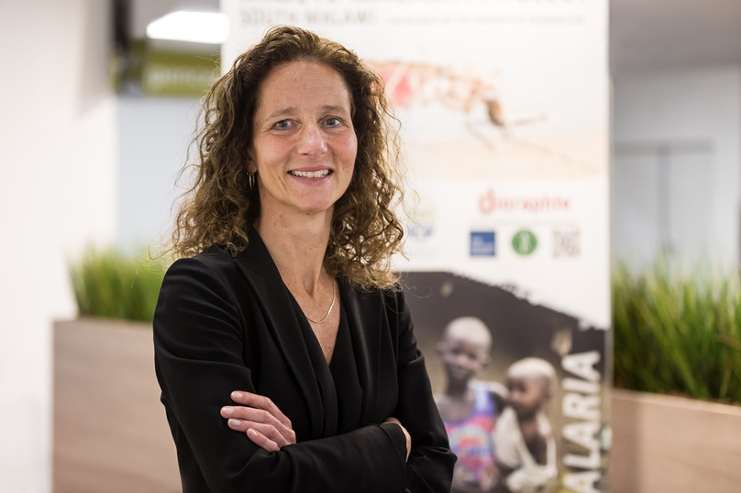
Michele van Vugt – Infectiologist – Amsterdam UMC
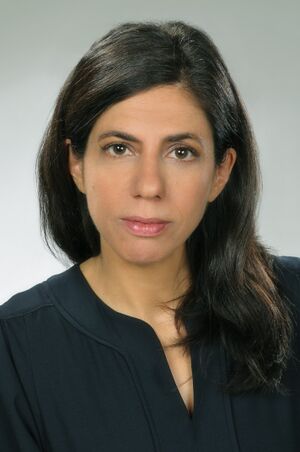
Elham Khatamzas – Infectiologist/Medical microbiologist – University Hospital Heidelberg

Maarten Heuvelmans – Medical Microbiologist – MMIG Gelderland
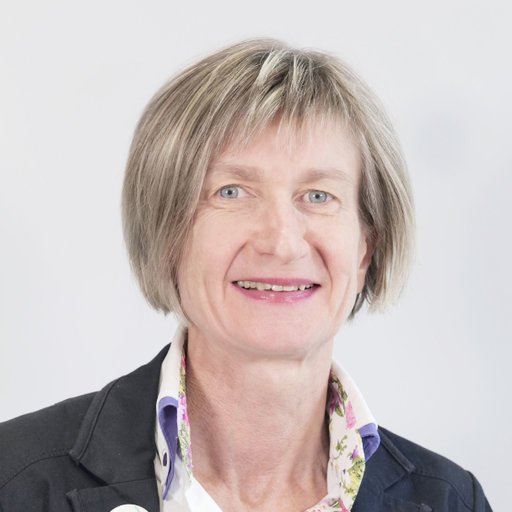
Marie Pierre Hayette – Clinical Biologist – CHU Liège
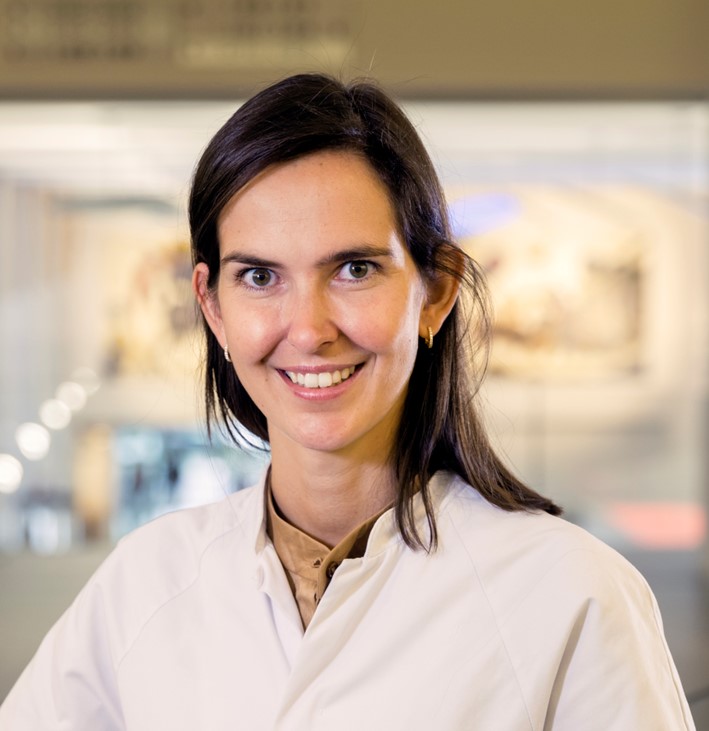
Astrid Muyldermans – Clinical Biologist – UZ Brussel
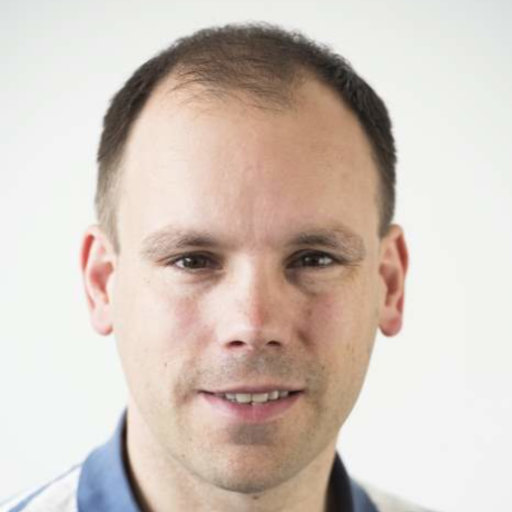
Pieter Vermeersch – Clinical Biologist – UZ Brussel
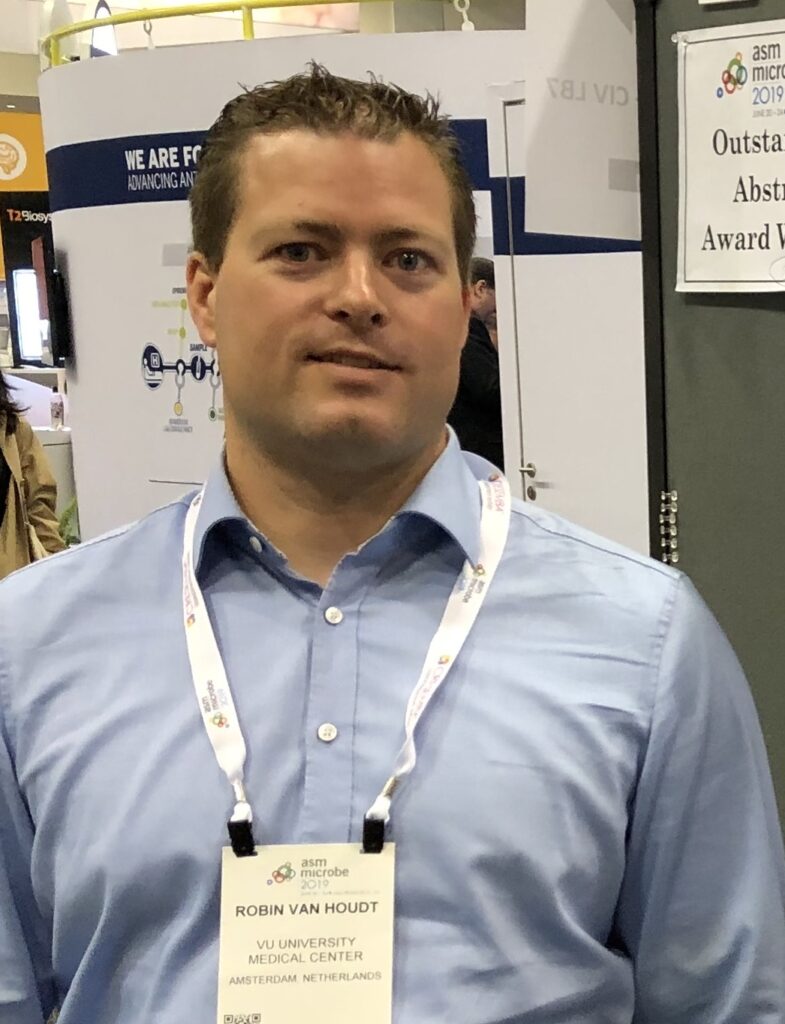
Robin van Houdt – Molecular Medical Microbiologist – Amsterdam UMC
Robin van Houdt is a Medical Molecular Microbiologist and head of the Molecular Diagnostics Unit at the department of Medical Microbiology and Infection Prevention of the Amsterdam UMC. He is a member of the “IVDR-Kennisgroep” at the Amsterdam UMC, chair of the NVMM Workgroup Molecular Diagnostics, and member of the Concilium MMM .
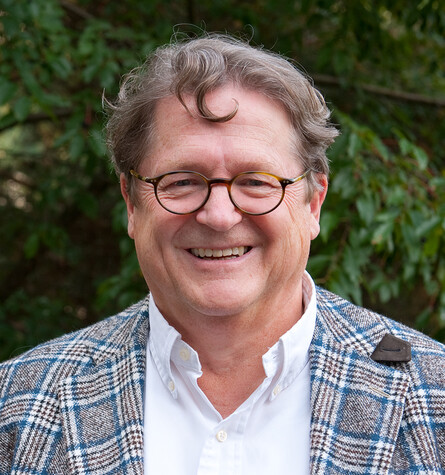
Andreas Voss – Clinical Microbiologist – UMCG
Andreas Voss is professor and chair of the Department of Clincal-Microbiology and Infection Control at the University Medical Center of Groningen, The Netherlands. His expertise is in the field of infection prevention and control, in particular the epidemiology of antimicrobial resistance, hand hygiene and behavior change.
Currently, he is president of the International Society of Antimicrobial Chemotherapy (ISAC) and board member of the Dutch Society for Medical Microbiology, as well as a past member of the Executive of the European Society of Clinical Microbiology and Infectious Diseases (ESCMID) and the Society for Healthcare Epidemiology of America (SHEA), and the Infection Control African Netwerk (ICAN). Andreas Voss was the co-founder of the International Conference on Infection Control and Prevention (ICPIC) and Founding Editor of the BMC journal Antimicrobial Resistance and Infection Control (www.ARICjournal.com). He has >350 peer-reviewed journal publications to his name (H-index overall: 72).
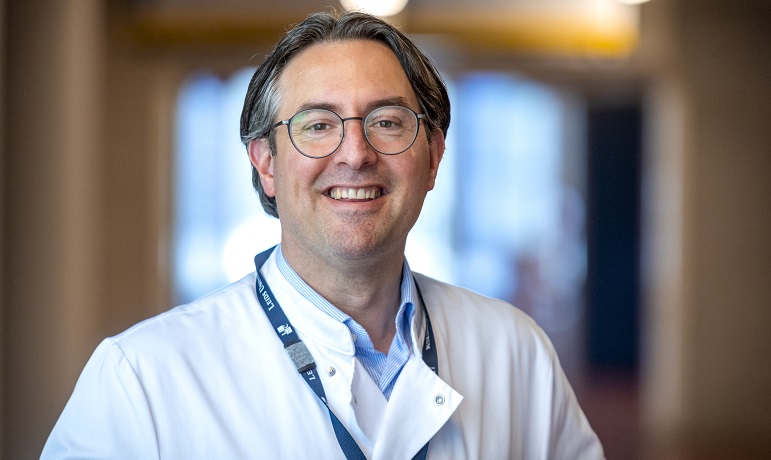
Mark de Boer – Infectiologist – LUMC
Mark de Boer is a specialist in Internal Medicine and Infectious Diseases at Leiden University Medical Center and the current president of the Dutch Working Party on Antibiotic Policy (Dutch acronym: SWAB). The SWAB is responsible for the national guidance on- and implementation of prudent antimicrobial therapy and antimicrobial stewardship; but also has an important role in the monitoring of antimicrobial consumption and antimicrobial resistance in the Dutch hospitals.
After graduation (medical degree, cum laude) in 2001, he was trained as a resident in internal medicine at Bronovo Hospital (The Hague) and Leiden University Medical Center. Subsequently, he enrolled in the infectious disease fellow training program in Leiden. After registration as infectious disease specialist, a PhD thesis entitled ‘Risk factors and new markers of pulmonary fungal infection’ was completed under the supervision of prof. dr Jaap T. van Dissel and dr. Frank P. Kroon. Thereafter the focus of research shifted towards the increasing threat of antimicrobial resistance (AMR). Since then he has acquired and participated in grant-funded research (including RCTs) on the topics of antimicrobial therapy, prosthetic joint infection, antimicrobial resistance and antimicrobial stewardship. As senior researcher, he has performed many studies on understanding and improving antimicrobial treatment and stewardship.
In 2017 he was appointed to develop and chair a new national eduction program in infectious diseases obligated for residents in internal medicine (COIG). Furthermore he has contributed to national guideline development (sepsis, diverticulitis, handling antibiotic allergy (chair)). From the start of the COVID-19 pandemic Mark de Boer has chaired the Dutch national advice on the medical therapy of COVID-19 for hospitalized patients from february 2020 onwards. Next to his medical specialty, Mark de Boer is qualified as a clinical epidemiologist. In 2019 he was elected a Fellow of the Infectious Disease Society of America (FIDSA). He also functions as the infectious disease section editor for ‘het Nederlands Tijdschrift voor Geneeskunde’, is a frequently invited lecturer, and has authored over 100 publications in the field of infectious diseases

Daniel Huang – Clinical Biologist – UCLouvain
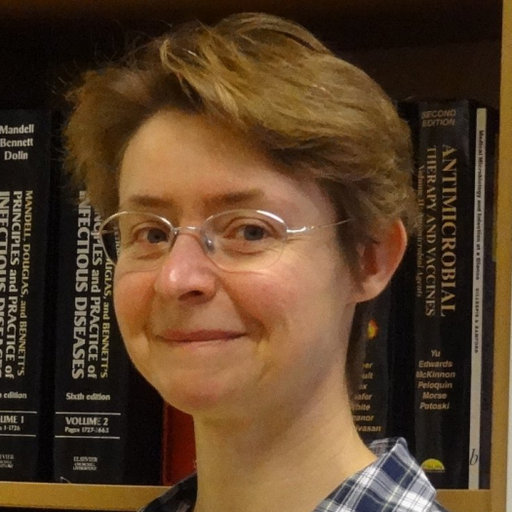
Françoise Van Bambeke – Pharmacologist – UCLouvain
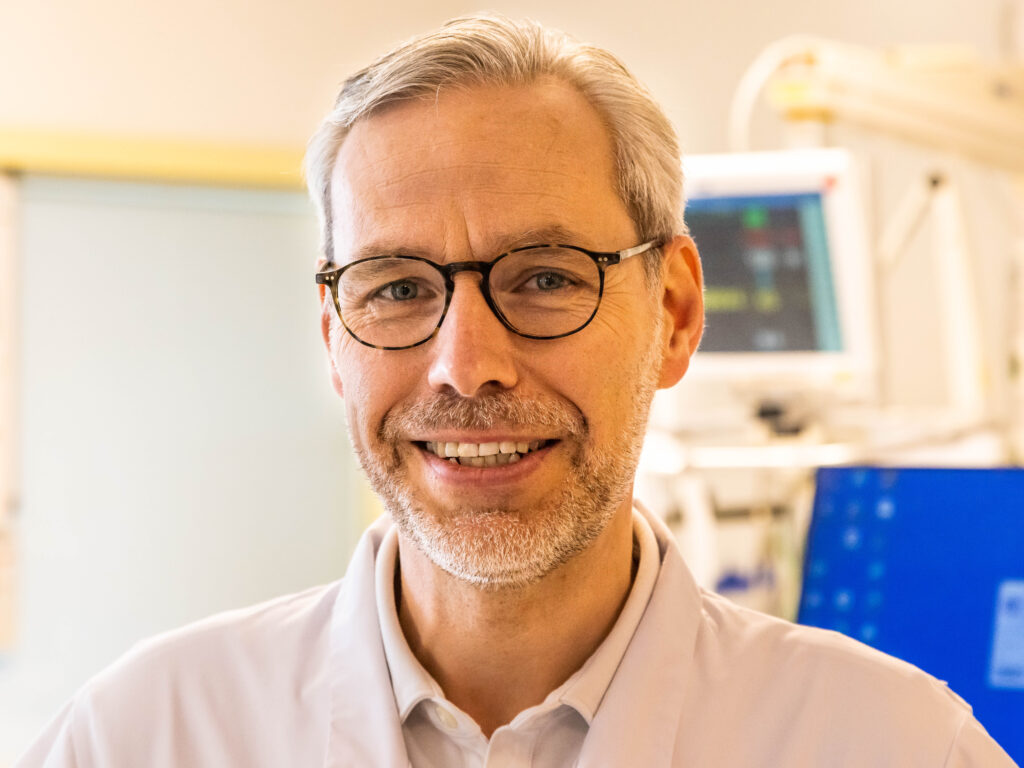
Jan Dewaele – Intensivist – UZ Gent
Jan De Waele is an intensivist at the department of Intensive Care Medicine of the Ghent University Hospital, full professor of Medicine at Ghent University and Senior Clinical Investigator with the Research Foundation Flanders, Belgium. His research activities currently deal with optimizing antibiotic therapy in severely ill infected patients to improve outcome and combat resistance development, with specific interest in PK/PD, therapeutic drug monitoring of antibiotics as well as antimicrobial stewardship.
He has ample experience in organizing clinical studies and is involved in many national and international studies and guideline committees. He is the Chief Investigator of the international, ESICM-endorsed DIANA (2018) and UNITE COVID (2021) studies, and is the 2022 President-Elect of the European Society of Intensive Care Medicine.
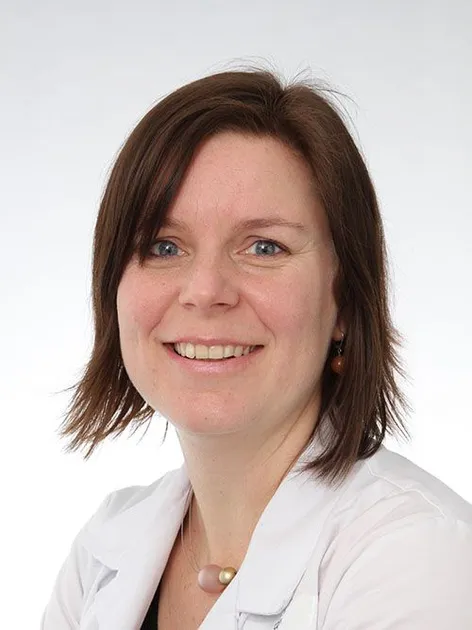
Isabel Spriet – Hospital pharmacist – UZ Leuven
Isabel Spriet is a clinical pharmacist working in the Pharmacy Dpt. of the University Hospitals Leuven, Belgium and parttime appointed Professor in the Clinical Pharmacology and Pharmacotherapy group of the Department of Pharmaceutical and Pharmacological Sciences at the KU Leuven after completing her PhD on clinical pharmacokinetics of antifungals in critically ill patients. Isabel Spriet is head of the clinical pharmacy department at the University Hospitals Leuven and supervisor of several PhD students investigating pharmacokinetics and pharmacodynamics of antimicrobials in special patient populations. She teaches clinical pharmacokinetics, clinical pharmacy and pharmacotherapy to students of Pharmaceutical Sciences, Medicine and Biomedical Sciences and is a member of the Commission for Medicinal Products for Human Use of the Federal Agency for Medicines and Health Products in Belgium. Isabel Spriet’s main research interests are the pharmacokinetics and pharmacodynamics of antibiotics and antifungals in special patient populations, including critically ill patients, patients on renal replacement therapy, patients on extracorporeal circuits and patients with liver failure.

Maya Hites – Infectiologist – ULB
Maya Hites is a physician who received her medical school diploma from the “Université Libre de Bruxelles” in 1999. She then received a diploma in Tropical Medicine from the Institute of Tropical Medicine in Antwerp in 2000. She gained experience in tropical medicine while working for Aide Médicale Internationale and Médecin Sans Frontières (MSF-B) from 2000- 2002. She then specialized in internal medicine, and infectious diseases at the “Université Libre de Bruxelles” from 2002-2008. She joined the Clinic of Infectious Diseases and Tropical Medicine at Erasme Hospital in Brussels, in 2008. In 2017, she obtained her PhD at the “Université de Bruxelles” after defending her thesis entitled, “Beta-lactam regimens in obese patients- what is the adequate dosage regimen?” Currently, she is a Professor at Erasme hospital.
Her main research topics are: 1) optimisation of dosage regimens of anti-infectious agents in special patient populations (critically ill patients, obese patients, cirrhotic patients, etc.), 2) identifying new therapeutic options for patients with infections due to very resistant pathogens, 3) improving diagnotic techniques for infections such as community and hospital acquired pneumonia, invasive aspergillosis and Pneumocystis jirovicii infections, and more recently 4) identifying efficace therapeutic options in COVID-19. She is a co-leader of the DisCoVeRy trial in Europe.
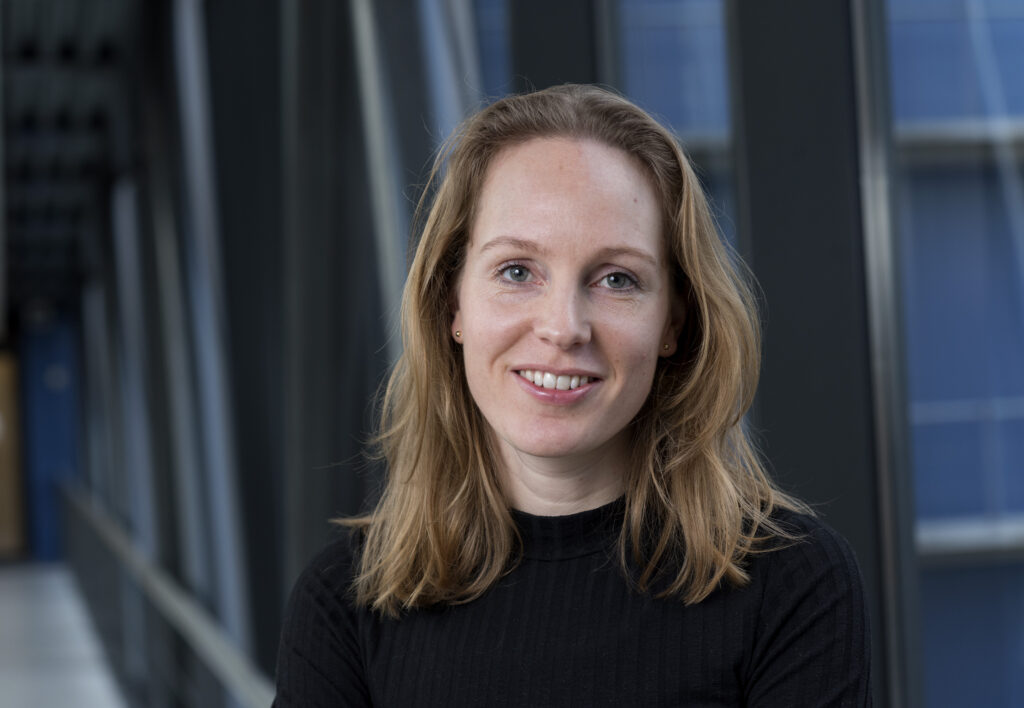
Merel Lambregts – Infectiologist – LUMC
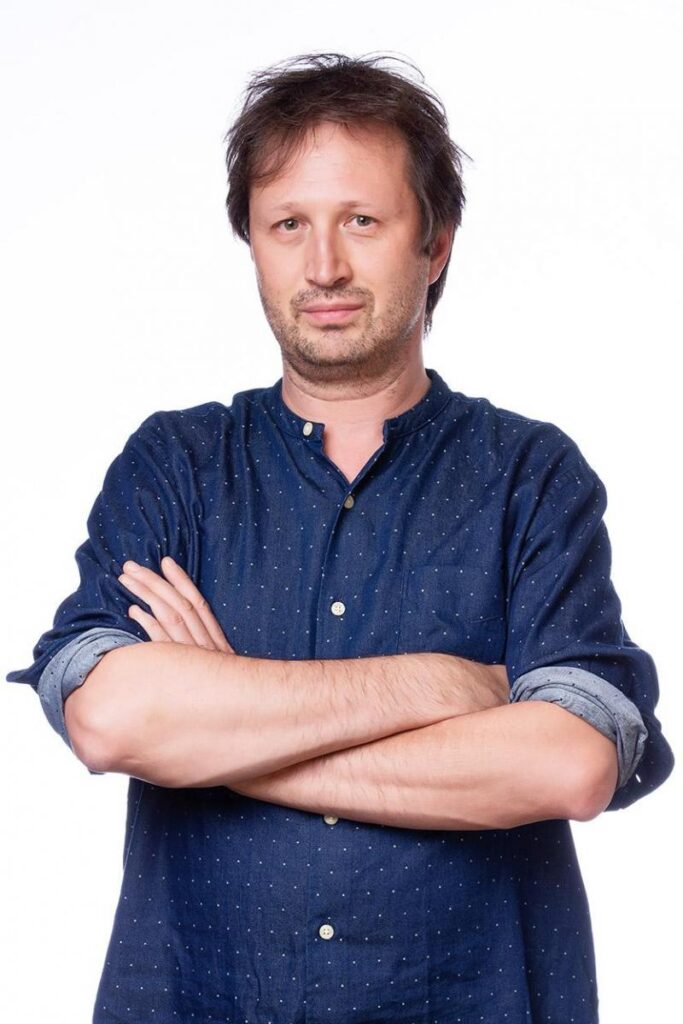
Olivier Denis – Clinical Biologist – UCL

Koenraad Van Hoorde – Sciensano
Koenraad Van Hoorde has a master’s degree in Biotechnology and obtained a PhD in Biochemistry at the Faculty of Sciences at Ghent University. For about 15 years he did research on the diversity and dynamics of microbiota associated with the production of various fermented food products using molecular and mass spectrometry based methods. An EFSA EU food risk assessment fellowship allowed him to gain expertise in the use of the newest generation of sequencing methods for microbial food safety and risk assessment purposes.
Since 2019 he is head of the Foodborne pathogens service at Sciensano. He and his team monitor food safety and contribute to public health policy by playing a role in the EU network of National reference laboratories and by taking part in food outbreak investigations and in the surveillance of foodborne pathogens and antimicrobial resistance. In addition, he’s partner in a national wastewater surveillance consortium bringing together molecular biologists, microbiology experts and epidemiologists, first of all as lead of the laboratories performing SARS-CoV-2 surveillance in wastewater but also to set up initiatives to extend wastewater surveillance to other public health parameters such as other pathogens and AMR, and chemicals.
He is member of the Scientific Committee of the Belgian Federal Agency for the Safety of the Food Chain, member of various scientific associations and is involved in several national and international research projects.
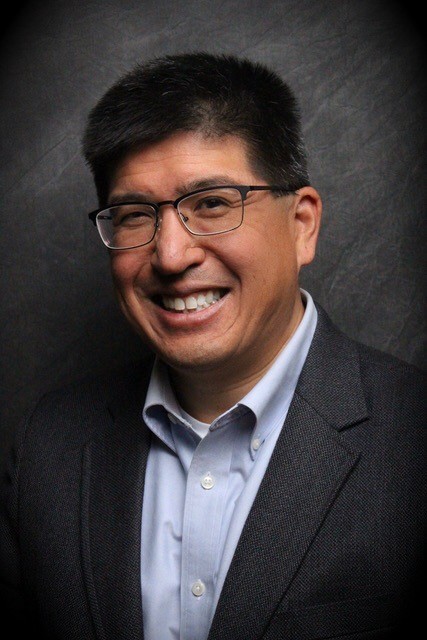
Matthew Lim – Infectiologist – WHO
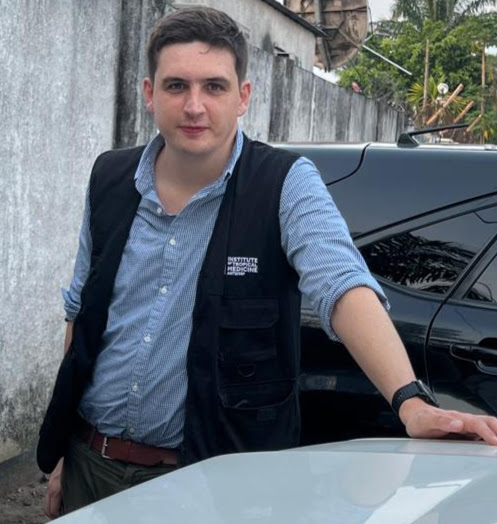
Laurens Liesenborghs – Infectiologist – ITG
Laurens Liesenborghs is an infectious disease specialist and researcher specialized in emerging infectious disease and humanitarian medicine. He has a broad scientific background and experience in several key domains of emerging infectious disease research, including animal models, preclinical drug development, virology, vaccinology, microbiology, clinical trials, and epidemiology.
During his PhD he developed a new preclinical mouse model to study the pathophysiology of infective endocarditis. Afterwards, he specialized in emerging viruses. Fist, by working for Doctors without Borders in a Lassa Fever project in Sierra Leone. Next, by conducting postdoctoral research in the BSL3+ lab of the University of Leuven. There, he helped to develop a hamster model of COVID-19 and worked on testing antivirals and a vaccine candidate for SARS-CoV-2.
Currently, he is an assistant professor of Emerging Infectious Diseases at the Institute of Tropical Medicine (ITM) and a member of ITM’s multidisciplinary Outbreak Research Team. His current research interest mainly concerns Monkeypox. Already before the global outbreak started, he was leading a ‘one-health’ project on MPXV transmission in the Democratic Republic of the Congo. In addition, he is currently conducting several research projects on MPX in Belgium, including a study on asymptomatic presentation, a close follow-up of high-risk contacts and several studies on MPXV diagnostics. He is also involved in a large European platform trial on MPX therapeutics.
Besides monkeypox, his main research topics include outbreak research, COVID-19 and viral hemorrhagic fevers, with ongoing projects in Belgium, DRC, Burundi, Guinea, Ghana and Ethiopia.
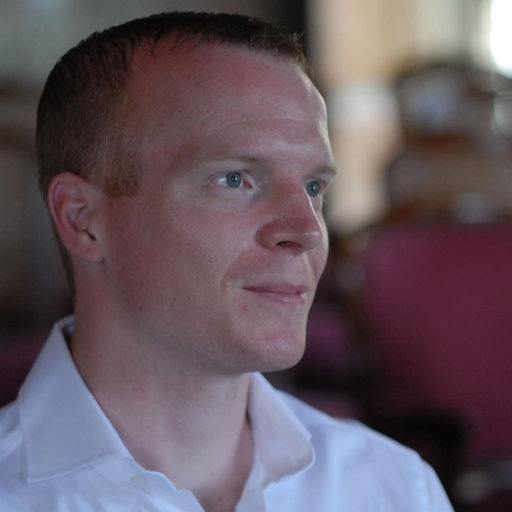
Mathijs Binkhorst – Pediatrician/Neonatologist – Radboudumc Amalia Children’s Hospital
Mathijs Binkhorst was born on the 8th of July 1981 in Tholen, Zeeland, the Netherlands. He first started a study of classical languages and culture (Greek and Latin) at the Radboud University in Nijmegen in 2000. After one year, he switched to medical school at the same institution. Mathijs received his medical degree in 2007 and began his training in Pediatrics in 2010, initially at the Jeroen Bosch Hospital, and later in the Radboudumc under supervision of dr. J.M.T. Draaisma. Mathijs was registered as a pediatrician in 2015. Subsequently, he was granted the opportunity to start a fellowship in Neonatology at the Radboudumc Amalia Children’s Hospital. Two years later, he became a member of staff at the aforementioned department. In 2021, he became a PhD, after defending his thesis on educational aspects of pediatric and neonatal resuscitation training. In addition to clinical care and research, Mathijs obtained a (basic) university teaching qualification and he was involved in many medical educational activities. Other fields of interest comprise simulation-based training, inborn errors of metabolism with neonatal onset, and communication within the realm of medical science. During the entire coronavirus pandemic, Mathijs dedicated much time and energy to the study of Covid-19, with the main purpose to use this knowledge to inform the public by simultaneously sharing the best available evidence in plain language and correcting one-sided, misleading, and false information on this topic.

Marc Van Ranst – Clinical Biologist – UZ Leuven
Prof. dr. Marc Van Ranst is born in Bornem on 20 June 1965. He graduated from KU Leuven in 1990 as a medical doctor and since 1985 he followed simultaneous training at the Leuven Rega Institute for Medical Research. The next four years he worked at the Albert Einstein College of Medicine in New York and obtained his doctorate in Virology in 1994. Another four years later he became a specialist in Clinical Biology. He has been a professor at KU Leuven since 1999. Meanwhile, he has also been working for more than 25 years at the Rega Institute in Leuven. From 2012 to 2020, he was Chairman of the Department of Microbiology, Immunology and Infectious Diseases in the Biomedical Sciences Group at KU Leuven and, since 2010, he has been a member of the management board at UZ Leuven.
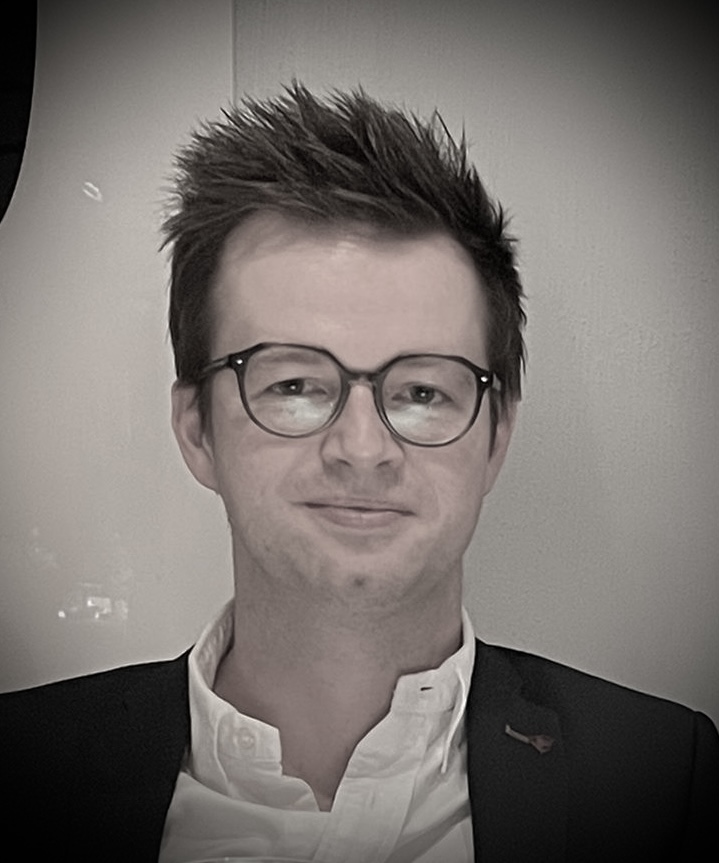
Thomas Couck – Resident Intensive Care Medicine – UZ Gent
Born 13/4/1990
MD (2015, KU Leuven)
Cardiologist (2021, KU Leuven)
Intensivist in training (expected 12/2022, Ghent University Hospital)
Current position:
Resident Intensive Care Medicine Ghent University Hospital
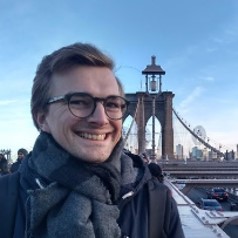
Gert-Jan Wijnant – Pharmacologist – UCLouvain
Gert-Jan Wijnant is a Belgian postdoctoral researcher and antimicrobial pharmacologist at UCLouvain in Brussels. After graduating as a pharmacist from Ghent University in 2014, he obtained his PhD in drug development for leishmaniasis at the London School of Hygiene and Tropical Medicine in the UK under the guidance of Prof. Simon Croft in 2018. He then worked as a postdoc on tuberculosis drug discovery at the Hackensack Meridian Health Center for Discovery and Innovation in New Jersey, USA with Prof. Véronique Dartois until 2020. Upon his return to Belgium in 2021, he joined the team of Prof. Françoise Van Bambeke at UCLouvain. Currently, he studies the clinical pharmacokinetics and PK/PD of the β-lactam antibiotic temocillin in patients with complicated urinary tract infections with the aim of optimizing dosing based on renal function. He is a Review Editor for Frontiers in Tropical Diseases and received a Young Investigator Award for his work on temocillin from the International Society of Anti-Infective Pharmacology (ISAP) earlier this year.
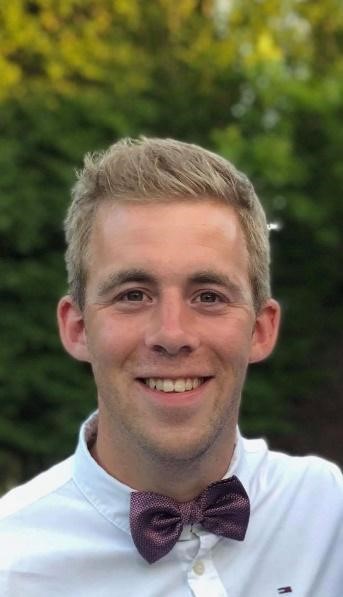
Sammy Huygens – PhD student Infectious Diseases – Erasmus MC
Sammy Huygens was born on 22 September 1993 in Bruges. He graduated at Ugent (Ghent) in 2018 as a medical doctor. Starting from there he began with his specialization in Internal Medicine. He worked as a trainee in AZ Sint-Jan Brugge for two years and UZ Gent for one year.
In 2021 he crossed the border to the Netherlands to start his PhD programme at the Erasmus MC, Rotterdam. He is currently working at the department of Internal Medicine, Section of Infectious Diseases and epartment of Medical Microbiology and Infectious Diseases. He is mainly focusing on the diagnosis and treatment of invasive aspergillosis as well as conducting research on treatment and viral evolution in severely immunocompromised patients with COVID-19.